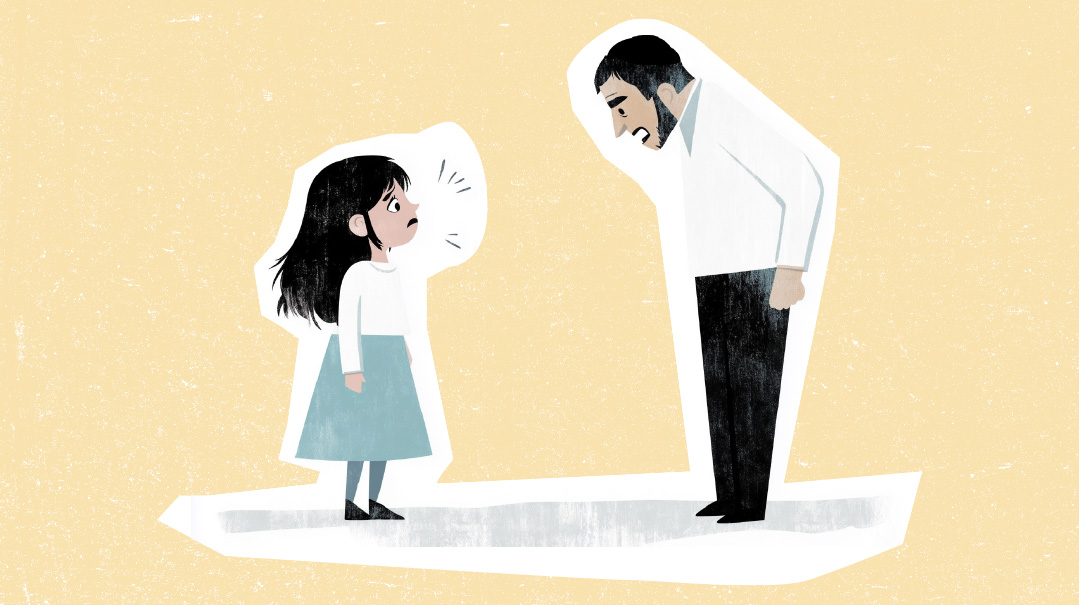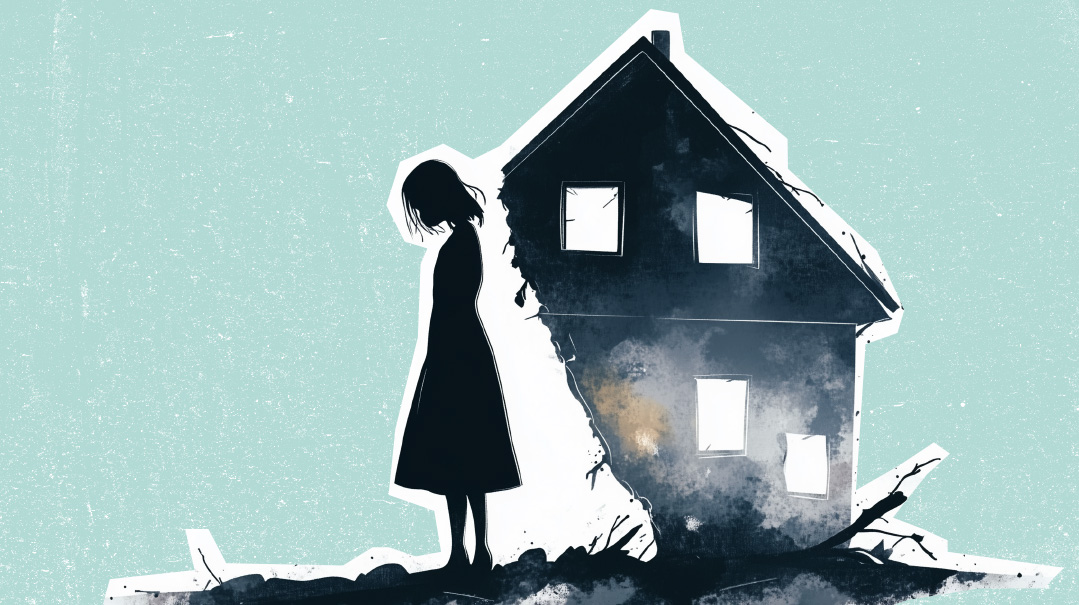My Daughter Won’t Talk to Her Father

Surely the point of her suffering wasn’t that she should become emotionally twisted, but rather that she should grow in wisdom and compassion.

Our daughter is 26 years old. She’s not yet married and lives at home with us. She works as a speech therapist and is busy with friends and volunteer activities. Here’s the problem: she doesn’t get along with my husband, to the extent that she doesn’t speak to him. I know it’s because he can be gruff and critical, and she’s a sensitive girl.
Over the years I’ve spoken to him about trying to be more gentle and positive, but it’s just his style. He doesn’t mean any harm. I’ve told my daughter that her behavior isn’t respectful, and I’ve asked her to go to counseling alone or with her father, but she refuses.
Her behavior makes the energy in the house very awkward and uncomfortable. We still have young kids living at home, and there’s one in particular who recently started to clam up, too. My husband is furious and thinks we should kick the older one out of the house, but I could never do that. This whole thing is really hard on me as I feel caught between my husband and my daughter, and I don’t know what to do.
Your dilemma touches on many important points. Something that stands out most for me as a parent educator is the harm that harsh parental behavior causes.
Some children — due to their inherent resilience and/or strong emotional support from other sources — manage to feel secure and loved while living with a chronically critical and/or angry parent.
But many more are at risk for developing emotional and behavioral issues as a result of this type of experience — both in the short- and long-term. This is why it’s so important for parents to find ways to educate their children kindly.
You tried unsuccessfully to bring this point home to your husband over the years and that’s all you could do — no one can “make” their spouse behave according to their own wishes. You did what you could do, but Hashem did not bless your efforts with success.
Oddly enough, this means it was bashert that your sensitive daughter be raised by someone with a gruff personality, that this was somehow important for her own spiritual journey. As we know, Hashem arranges both our genes and the events of our childhoods in order to direct our paths in life. We know it, but of course we always wish for a happy and easy path.
So we might wonder: What was your daughter supposed to get out of being raised this way? Surely the point of her suffering wasn’t that she should become emotionally twisted, but rather that she should grow in wisdom and compassion.
You may be able to help her toward this goal. If she’s hurting — and she clearly is — then you can support her emotionally with your own wisdom and compassion. This means conveying to her that you understand she has been hurt and that you’re so sorry this happened. You can listen to her complaints without condemning your husband, simply by acknowledging her pain. Of course, helping her also means offering her access to professional help — something you’ve already done. In addition, it means guiding her in the behavioral realm as well — something you’ve tried to do by pointing out that ignoring her father’s presence isn’t respectful.
What you can’t do is force your husband to change, nor can you make your daughter change her coping strategy. She has found a way to reduce her emotional vulnerability: Pretending that her father doesn’t exist is her way of staying safe.
Your daughter is in fact an adult woman. Married or not, she’s no longer a trapped, dependent child. Moreover, she no longer has a “right” to live in her childhood home, receiving the benefits of room and board from someone she doesn’t talk to. If your daughter won’t accept counseling to help her heal so she can behave more normally toward her father, that is her choice.
However, there is no need for her to stay in her father’s house and to poison the atmosphere for the whole family. His poor behavior doesn’t justify hers. Indeed, this behavior will eventually distort her own personality, as well as harm everyone else. She shouldn’t be “kicked out,” but you can tell her that if she’d like to continue living in your home, she needs to embark on a healing path that will enable her (within a reasonable amount of time) to speak to her father. The current arrangement shouldn’t continue.
(Originally featured in Family First, Issue 836)
Oops! We could not locate your form.





